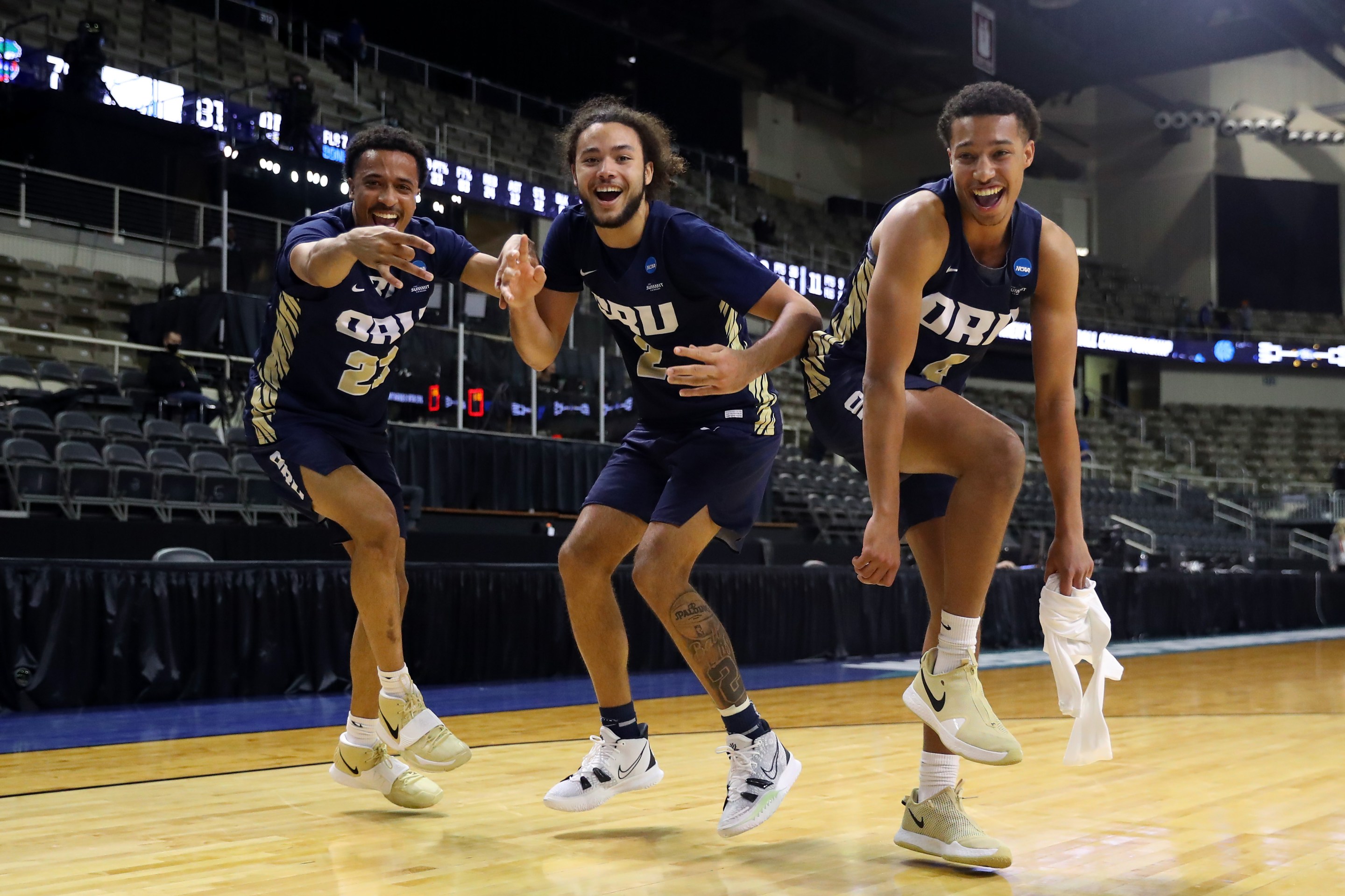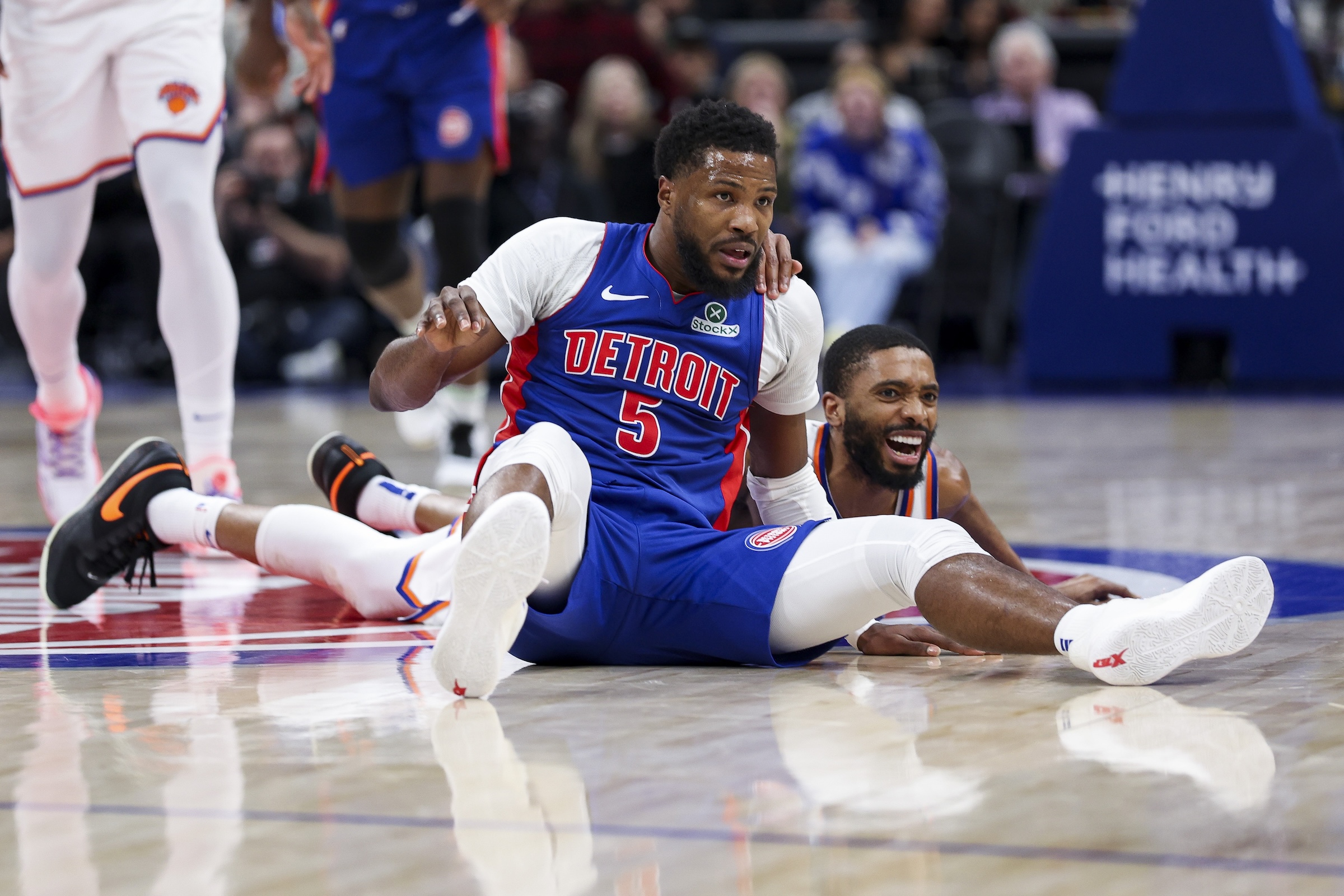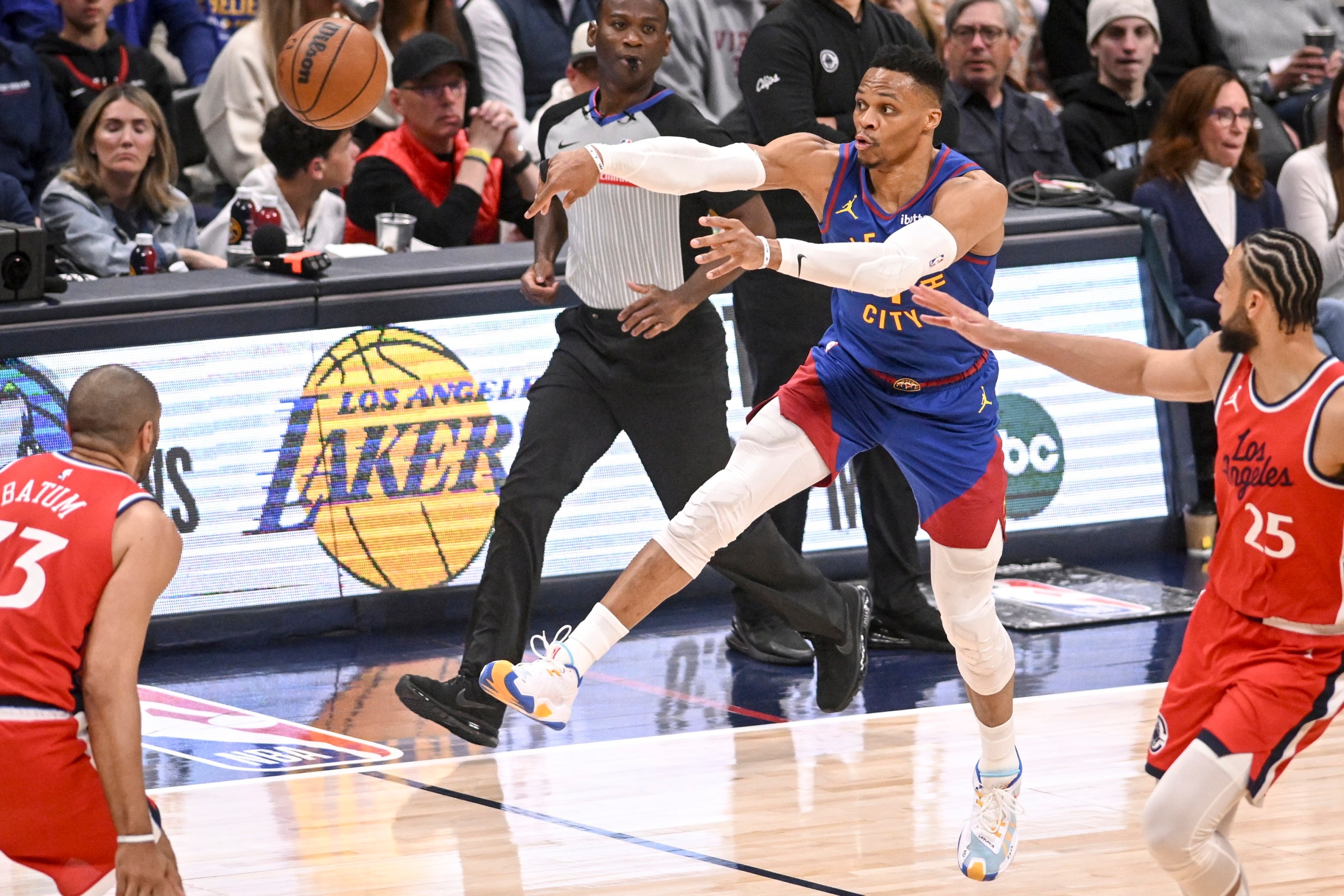It is axiomatic that anyone decrying the presence of politics in sports is trying to sell you something much less interesting and fun than sports, and generally also more oafishly political than whatever intrusion they're pretending to be upset about. This gambit started as a bit of empty campaign-season cynicism, but has like every other similarly vapid partisan sadism somehow become a central political appeal for people who cannot otherwise make a compelling political appeal on the merits. The problem of politics in sports, like the vague and ever-looming scourge of The Cancel Culture Mob or any number of other ostensibly ominous and imminent threats to our way of life, is something that does not really have any sort of political solution. It's a menace, maybe the most urgent and odious one the nation faces, but none of the people sounding the alarm can or will quite say what exactly it is. This is very much by design.
This is, even, the point. The game is not to fix or even really address the threat—whatever it even is, however that might even be done—but to just go on worrying and warning about its merciless creep and secret power. Keeping it vague is handy, among other things, as a sort of pre-emptive justification for whatever excesses might be committed in the future as part of that long campaign against it; as long as the towering existential threat in question is just whatever annoying thing the other guys are doing or getting ready to do, any response is justified, and always in play. What was once a familiar bit of trashy television news programming strategy—a threat too vast to have any real shape or apparent objective or even stated object can readily be made terrifying enough to keep incurious people seething and softening in front of their televisions through another commercial break—first overtook and then just became the whole of conservative politics. It's war all the time, but always and only in the foggiest possible way.
There is something deranging about all this, just at a tonal and aesthetic level. It is bizarre, and funny in ways that are hard to laugh at, to see all these interchangeable podgy squinting men and furious glossy women wailing and mewling from their little cable news boxes about the holocaust on forgotten children's books and The Left Viciously Canceling Speedy Gonzalez, all while the world strains and mourns and hopes into the 13th month of an unfinished plague. There is something dispiriting about it, too, primarily in how readily this particular blank and vinegary stripe of grievance, which was once mostly the campaign-season cover for the most unpopular political ideas in recent history, came to supplant those ideas and then everything else. But it is also dispiriting how ready and even eager the culture was to embrace it, and the abjection and defeat in that choice.
Still, when this work is done poorly enough there can be something bleakly funny and instructive about it. Finally, we have gotten to Oral Roberts, a 15-seed that will play in the Sweet 16 tonight after two extremely convincing wins in the men's NCAA Tournament over Ohio State and Florida. More specifically, we have gotten to how that stridently Jurassic institution and their objectively delightful upstart basketball team can be assimilated into our shitty national un-conversation, by the very people ostensibly most upset about the intrusion of politics into Our Games.
One way in which politics have always been in sports is through a sort of play-fighting version of partisanship; this was true long before raw idiot partisanship became the only living thing in our national politics, and the way in which it manifests, through rivalries and beeves and enmities that have outlived their long-ago causes, is entirely harmless. This is because these games are mostly just something to watch on TV, and so not really worth getting too upset about. If you want to root for Oral Roberts because they play a fast and endearing style on offense, have reliably flustered much bigger and more talented teams on defense, and are winning games they were not expected to win, that is fine. If you know about the institution, which is authentically and stridently backwards every place it can be as a matter of policy, and decide that actually you would like to see their team get dunked into the earth's molten core, that is also fine. It's a basketball game, and you absolutely should do whatever you deem fit to make the experience of watching it as interesting and enjoyable for yourself as it can possibly be. Every fan knows this, and lives it. This would not bear mentioning were it not constantly being spun into something else by people who want to talk about something different.
"In the most recent example of cancel culture," Wheaton College dean and USA Today opinion contributor Ed Stetzer writes, "the mob has been coming after ORU—mocking their name, history and beliefs as bigoted or homophobic. Some have even gone so far as to call for the NCAA to restrict such Neanderthals from playing, others saying they should be 'pariahs, not heroes.'" Say what you will about the quality of this argument—which is frenzied and poor, spinning a ravening mob out of two blog posts and then acting as if Oral Roberts is being pushed out of college athletics entirely—but the writing is also very bad. Stetzer drops the Golden Eagles quickly and turns to the Equality Act, an amendment to the Civil Rights Act of 1964 expressly forbidding discrimination on the basis of sexual orientation and gender identity, which passed the House of Representatives in February and is now before the Senate. Oral Roberts is one of several Christian schools that have argued that this bill discriminates against them by restricting their right to discriminate according to their beliefs. If they (bloggers, posters, fans) are coming for (making jokes about, mostly) the Summit League Champion Oral Roberts Golden Eagles, then it surely is a matter of time before the state rescinds a bunch of the more important and popular constitutional amendments.
Stetzer conflates the implications of the Equality Act—an imposition by the state that can if nothing else at least be said to exist—with an Outsports blog post that writes "Oral Roberts is what would happen if Cinderella were played by Anita Bryant. And the story would consist entirely of Cinderella screaming that you’re going to hell for the jokes you’re already making about her school’s name." (In a post at For The Win, which is also owned by USA Today, Hemal Jhaveri went a bit further, arguing that ORU's policies so thoroughly contradict the NCAA's stated dedication to inclusion that they shouldn't be allowed in NCAA competition.) Who, Stetzer asks, is really intolerant, here—the institution that enshrined and proudly proclaims the most antique and oafish intolerance as a fundamental cultural value, or people who notice that and subsequently make the informed choice to root for them to lose a basketball game, or idly joke about them on Twitter? To the extent that this argument involves the Golden Eagles basketball team at all, it is grounded in a risibly convenient misunderstanding of the power dynamics involved; the Equality Act may or may not represent a threat to ORU and other evangelical schools that have made anti-LGBTQ+ policies a cornerstone of their culture, but blog posts and goofy Twitter blowjob jokes decidedly do not.
Even by the standards of this kind of contemporary conservatism, which tends to treat getting challenged or treated rudely online as if it were the same thing as dying in a brutal gulag, this is exceptionally prissy and overweening stuff. This, presumably, is why Stetzer felt compelled first to enlist this basketball team in his broader culture war and then to pretend that they had been killed in it. "Perhaps, instead of such a pendulum swing against people of faith, we could agree that all persons are worthy of dignity and respect, and that civil rights should matter for everyone," he concludes. "And, maybe, just maybe, we could let the religious college kids play basketball without it becoming a national controversy. That is what tolerance used to mean."
That last dubious sniffiness aside, it might just be the case that Stetzer isn't cut out for fandom's basic contentiousness. But it's worth noting the ways in which the intolerant "new tolerance" he bemoans tends to manifest itself in the actual world, and what consequences it tends to produce. On Sunday, the day before she published her post about Oral Roberts' basketball team, Jhaveri posted and then deleted a tweet about that day's mass shooting in Boulder, Colorado; a conservative YouTuber named Dave Rubin flagged it as an example of anti-white racism, which elicited a furious response from the sort of hair-trigger chowderheads who would be whipped up by such a thing. "There was social media outrage, threats and harassment towards me, and by the end of the day, USA TODAY had relieved me of my position as a Race and Inclusion editor," Jhaveri wrote on Friday. This is the secret that arguments like Stetzer's are too self-involved or too self-aware to make explicit—that a threat is only really as threatening as the people behind it, and that a mob only looks like a mob when you're not a part of it. Of course he can barely bring himself to care about the Golden Eagles and their run; they're just playing a game.






